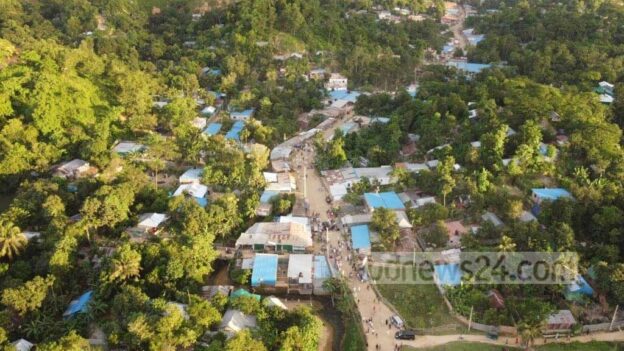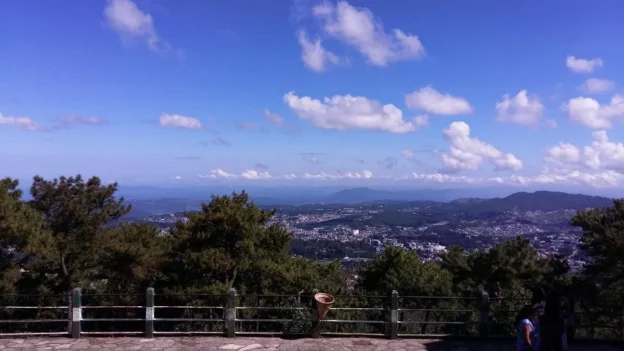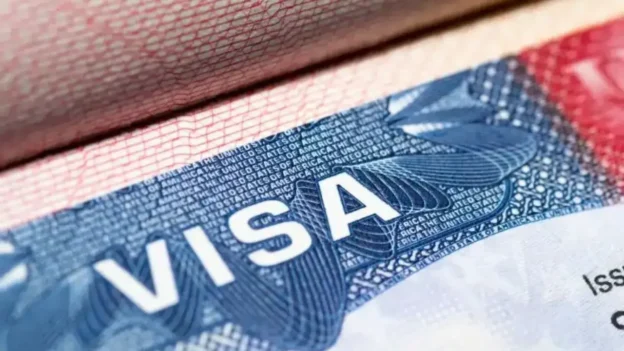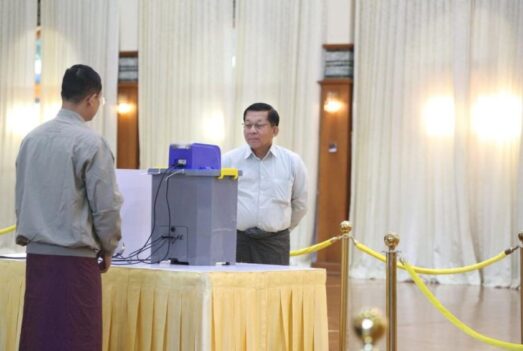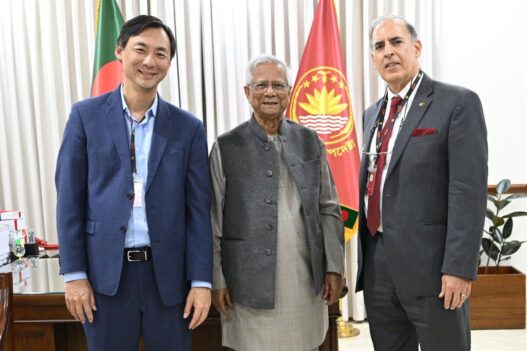Guwahati: The Pragjyotishpur Literature Festival 2025 drew to a close on 16 November at Srimanta Sankardeva Kalakshetra, with a dignified valedictory ceremony graced by PLF president Phanindra Kumar Dev Choudhury, chief guest Dr. Apurba Kumar Saikia, and an impressive gathering of writers, critics, journalists and literature enthusiasts. The third edition of the festival, held from 14–16 November, marked yet another step in its mission to reconnect Assam’s younger generations with the region’s rich literary and cultural heritage.
Two Assamese writers were honoured with the PLF Awards 2025: Tiwa scholar, researcher and essayist Maneswar Dewri, and emerging short-story writer Srotashwini Tamuli. Dewri, who has spent decades documenting Tiwa society, culture and history, expressed deep gratitude, noting that his work on the community’s identity, struggles and evolving histories may serve as a valuable resource for future researchers. Tamuli—author of Jalkhar and a research scholar at Birangana Sati Sadhani State University—observed that receiving the award at an early stage in her career brings both pride and a heightened sense of responsibility towards creative writing.
In the valedictory address, Sahitya Akademi awardee Dr. Saikia praised the festival’s theme, In Search of Roots, for spotlighting the literary, cultural and linguistic legacies of the land once known as Pragjyotishpur, the heart of ancient Kamrup. He noted the growing engagement of young writers, translators, theatre workers, film practitioners and general readers, expressing hope that PLF will soon claim its place as a major literary festival in India.
Sessions that Illuminated Assam’s Literary Landscape
A series of intellectually rich sessions defined the three-day festival.
A panel on The Creative World of Novelist Birendra Kumar Bhattacharya brought together Anuradha Sarma Pujari, Pranjal Sharma Basishtha, Smritirekha Bhuyan and Rupam Barua, who guided the audience through the world of the Gnyanpeeth awardee—often hailed as one of India’s finest novelists.
Nature literature took centre stage in a discussion led by conservationist-writer Soumyadeep Dutta, who reflected on the distinct ethos of Indian nature writing. He drew a clear line between Western, human-centric environmental writing and the Bhāratīya tradition that embraces all living beings. A follower of the Buddha’s teachings, Dutta also highlighted the ethical dimensions that shape ecological consciousness.

A session on Assamese translated literature—featuring Akademi awardees Bipul Deuri, Diganta Biswa Sarma, and writer-translator Dr. Nayanjyoti Sharma—explored the expanding horizons of translation. Sarma emphasised that translation today is admired as a literary form in its own right, and he underscored the enduring importance of Sanskrit as a foundational language to strengthen India’s linguistic future. Nayanjyoti reflected on the growing opportunities as well as the challenges in translating Assamese works for wider audiences.
The festival opened with a strong cultural message from distinguished litterateur Nanda Singh Barkola, who invoked India’s global rise and drew from pre-Sankari traditions to remind audiences of the region’s forgotten literary roots. The keynote speaker, internationally acclaimed author Shefali Vaidya, praised the festival’s evolution and began her address in Assamese, celebrating the linguistic and cultural richness of the Northeast while recalling the timeless songs of Dr. Bhupen Hazarika.
The inauguration also saw the release of the souvenir Pragjyoti, edited by Hemchandra Doley, and floral tributes to three cultural stalwarts: Sudhakantha Dr. Bhupen Hazarika, Zubeen Garg, and flute maestro Deepak Sharma.
Celebrating Theatre, Journalism, Poetry and Performing Arts
Day Two featured four memorable sessions.
An interaction with actor and legislator Prithwiraj Rabha, moderated by Nayanjyoti Bhattacharyya, captivated audiences as Rabha vividly recounted the artistic and revolutionary journey of his father, Kalaguru Bishnu Prasad Rabha. He described how Kalaguru dedicated his life to three “masters”—Sri Krishna, Srimanta Sankardeva and Leonardo da Vinci—and traced the many episodes that shaped the cultural icon’s life.
A panel on Assamese Language, Literature and Journalism—with speakers Dilip Chandan, Bedabrata Dev Mishra, Bidyut Kumar Bhuyan and the present writer—focused on the challenges facing print journalism in an era of digital saturation. The panelists agreed that traditional journalism, rooted in language and community, can regain the trust of readers as digital fatigue increases.
In a session on Evolution of Assamese Performing Arts: From Ankiya Bhawana to Bhramyaman, filmmaker Kripal Kalita, performer Pakija Begum, and dramatists Pankaj Jyoti Bhuyan and Hillal Kumar Pathak shared both concerns and optimism regarding Assamese theatre. They acknowledged the immense contribution of mobile theatre groups while noting that a distinct, identifiable school of Assamese theatre has yet to fully emerge.
The festival also hosted multilingual poetry recitations under Kavya Kaveri, where poets enthralled audiences with compositions in various languages, reflecting the region’s diverse cultural voice.
A Festival Rooted in Place, Purpose and Literary Possibility
As literary festivals multiply across the Northeast, PLF stands out as a significant cultural intervention—one that not only celebrates writing but actively strengthens regional literary ecosystems. In a time when local languages, histories and intellectual traditions need urgent nurturing, festivals like Pragjyotishpur offer a vital platform for dialogue, rediscovery and creative confidence. By spotlighting indigenous knowledge, regional literature, translation, and cultural memory, the festival underscores the importance of telling our stories with depth, dignity and pride.
Organizers—including PLF general secretary Bikram Kalita, Kishor Shivam, Hirakjyoti Sarma, Pramod Kalita and Bhaskarjyoti Sarma—expressed gratitude to all speakers and participants for shaping three days of rich deliberations that brought together writers, translators, art connoisseurs, critics, performing artists and readers.
The Pragjyotishpur Literature Festival 2025 concluded not merely as an event but as a reminder of the Northeast’s literary resurgence—one that continues to inspire new voices, revive old traditions, and strengthen the region’s place in India’s cultural landscape.


